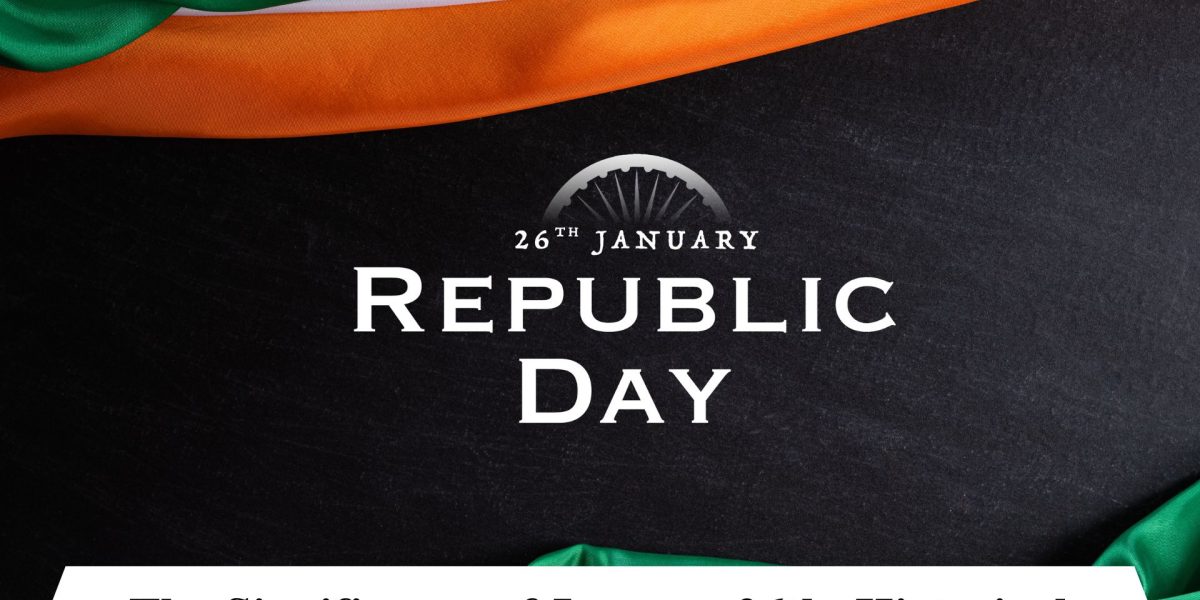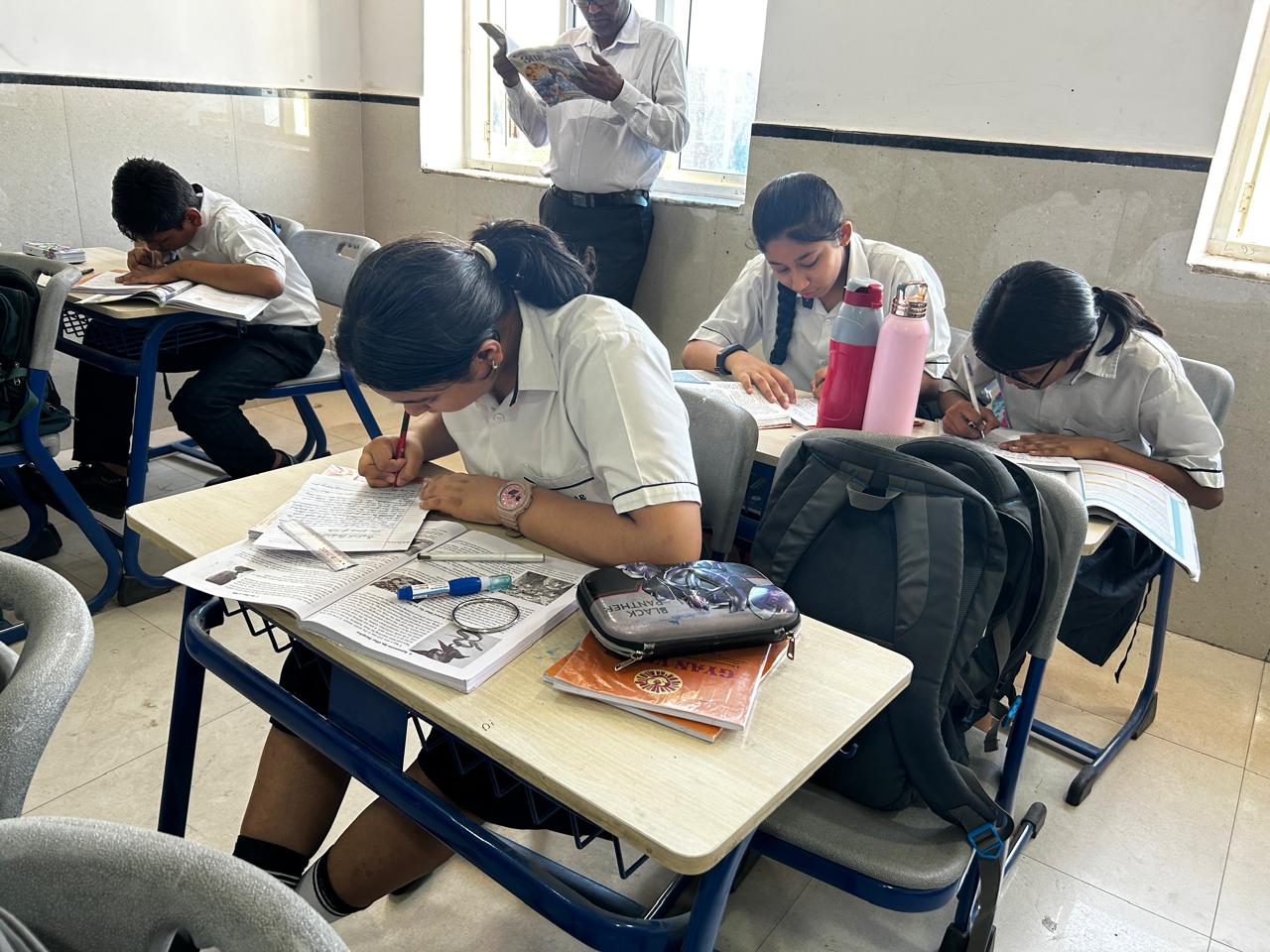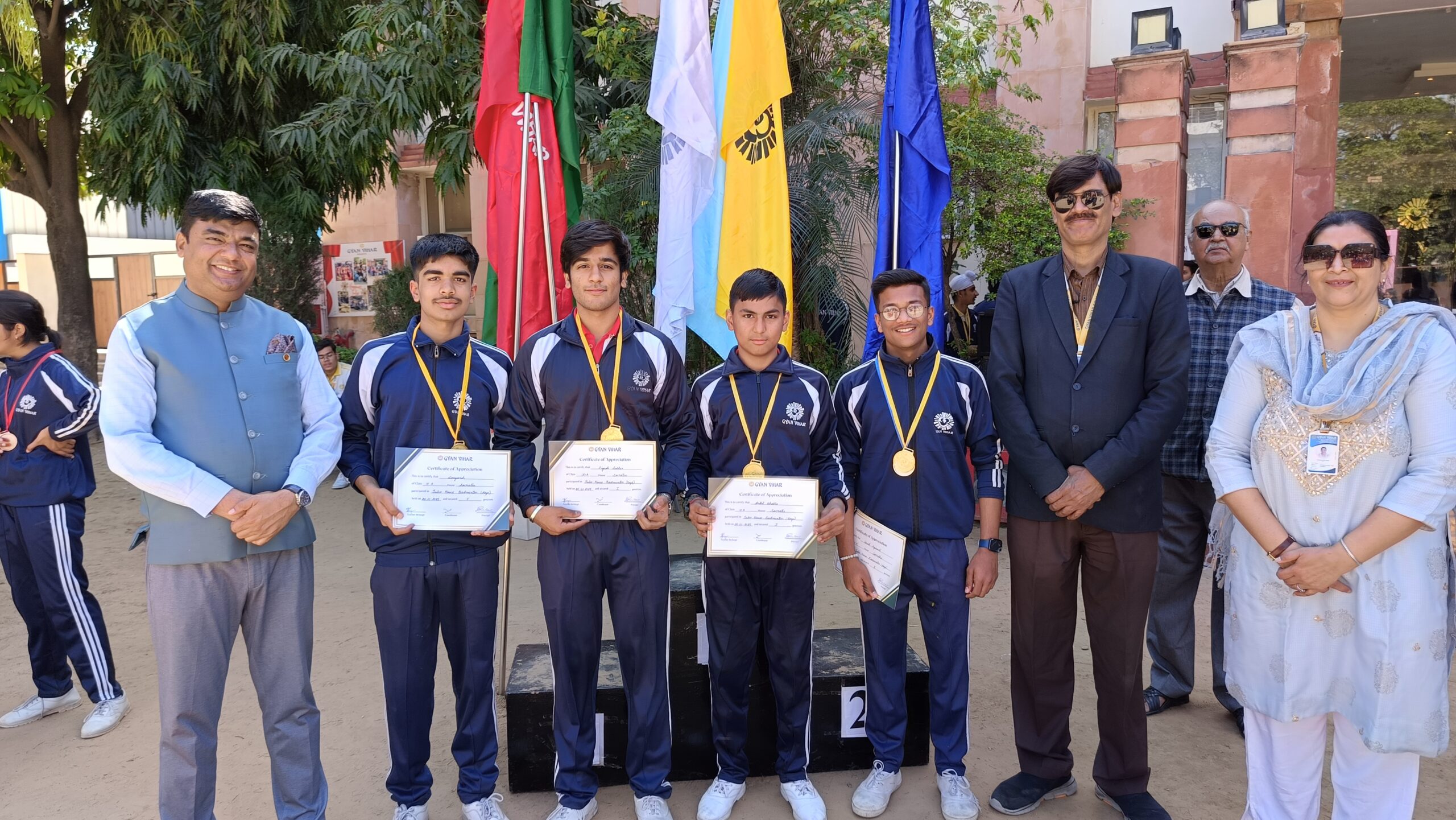January 26th, a date etched in the collective memory of every Indian, is celebrated with immense pride and fervor as Republic Day. At Gyan Vihar School, a distinguished institution ranking among the CBSE Schools in Jaipur, we recognize the deep-rooted historical significance and the profound importance attached to this day in the Indian calendar. The journey towards understanding the importance of January 26th involves traversing through the pages of our nation’s history, marked by resilience, sacrifice, and the relentless pursuit of freedom.
This day, which holds an unparalleled place in the hearts of citizens, marks the culmination of India’s transition into a sovereign, socialist, secular, and democratic republic. As we commemorate this monumental occasion, it becomes imperative to delve into the historical context that led to the framing of our Constitution.
The preamble of the Indian Constitution, embodying justice, liberty, equality, and fraternity, serves as a guiding light for the nation. Gyan Vihar School recognized as one of the Best Schools in Jaipur, places significant emphasis on fostering an understanding of these constitutional values among its students.
In this blog, we will unravel the historical journey that culminated in the adoption of the constitution, explore the key features that define its essence, and delve into the unique celebrations that distinguish Republic Day at Gyan Vihar School. Join us in this exploration of historical richness and patriotic fervor, as we illuminate the profound importance of January 26th.
A Journey Through Time: Unraveling the Historical Tapestry of January 26th
January 26th, a date etched in the Indian calendar, holds a complex and layered history, weaving together narratives of colonialism, independence, and the birth of a modern nation. To fully grasp its significance, we must embark on a journey through time, unearthing the events that shaped this date and its diverse meanings.
1788: Seeds of Colonialism and Indigenous Dispossession: Our journey begins across the globe, on the shores of Australia. On this day, Captain Arthur Phillip arrived with the First Fleet, marking the formal establishment of British colonization. While celebrated as “Australia Day,” this event carries a sad undercurrent. The arrival of European settlers marked the beginning of a long and painful dispossession of the Indigenous Australians from their ancestral lands and cultural practices. The shadows of this historical event continue to cast their influence on the contemporary discourse surrounding January 26th, prompting critical reflection on the legacies of colonialism and the importance of recognizing the voices of those marginalized by its force.
1930: Purna Swaraj – The Declaration of Indian Independence: Fast forward to India, where the year 1930 witnessed a pivotal moment in the long struggle for freedom. On this date, at the Lahore session of the Indian National Congress, Mahatma Gandhi, the iconic leader of the independence movement, formally declared the demand for “Purna Swaraj” – complete independence from British rule. This declaration marked a turning point, galvanizing the nation and setting the stage for two decades of determined resistance that would culminate in the hard-won freedom of 1947. January 26th, 1930, thus stands as a potent symbol of Indian resolve, reminding us of the sacrifices made and the unwavering spirit that fueled the fight for self-determination.
1950: Birth of a Republic – India Embraces Democracy: Our journey culminates in 1950, on the very date we celebrate today. On this momentous occasion, the Constitution of India came into effect, marking the transformation of the nation from a dominion under the British Crown to a sovereign, democratic republic. This day, etched in golden letters in Indian history, signifies the birth of modern India. The Indian Constitution, a beacon of democratic principles, established a framework for governance based on secularism, socialism, and justice, laying the foundation for the vibrant multicultural democracy we witness today.
These three crucial events, woven together across continents and decades, form the historical tapestry of January 26th. Unraveling their threads allows us to understand the date not as a singular moment, but as a confluence of narratives, each echoing with its own set of triumphs, struggles, and enduring legacies.
Beyond the Dates: Understanding the Layers of Significance
While the historical events surrounding January 26th offer clear context, the date continues to hold layered meanings for modern India. It is not merely a celebration of the past; it is a canvas upon which contemporary narratives are painted and complex conversations are held.
- Celebrating National Identity and Progress: For many Indians, January 26th is a day of unbridled national pride. It celebrates hard-won freedom, democratic values, and the rich tapestry of cultures and traditions that define India. Witnessing the vibrant parades, the echoes of the national anthem, and the joy shared across communities reinforces a sense of belonging and collective identity. On this day, we commemorate the milestones we have achieved as a nation and rededicate ourselves to fulfilling the promises of our democratic republic.
- Critical Reflection and Open Dialogue: However, January 26th is not without its complexities and controversies. Acknowledging the perspectives of marginalized communities, particularly those impacted by colonialism and social inequalities, is crucial. The events of 1788 in Australia serve as a stark reminder of the darker chapters of history, urging us to engage in critical reflection on the legacies of colonialism and strive toward a more equitable future. Open and respectful dialogue around these sensitive topics becomes essential, allowing us to move beyond celebratory narratives and embrace the multifaceted nature of this date.
- A Catalyst for Learning and Understanding: As students at Gyan Vihar School, a leading educational institution among CBSE Schools in Jaipur, January 26th transcends being simply a date on the calendar. It becomes an opportunity to learn, to critically analyze, and to engage in informed dialogue. By exploring diverse perspectives, delving into historical nuances, and acknowledging the ongoing struggles for social justice, we equip ourselves with the tools to be responsible citizens. January 26th becomes a catalyst for continuous learning, urging us to move beyond rote memorization and embrace the complexities of our nation’s history to shape a more inclusive and just future.
Gyan Vihar School: Building the Bridge Between History and the Future
Gyan Vihar School, proud to be among the CBSE Schools in Jaipur, fosters an environment where historical events like January 26th are not merely dates to be memorized, but complex narratives to be dissected, debated, and understood. We believe in:
- Encouraging Critical Thinking: We provide students with the tools and resources to analyze historical events from multiple perspectives, fostering critical thinking skills and independent thought.
- Open and Respectful Dialogue: We create a safe space for open and respectful dialogue on sensitive topics, allowing students to share their opinions and learn from each other’s perspectives.
- Connecting History to the Present: We bridge the gap between historical events and their contemporary relevance, helping students understand how the past continues to shape the present and guide the future.
- Nurturing Responsible Citizens: By engaging with complex historical narratives, we aim to cultivate responsible citizens who can actively participate in India’s ongoing journey towards a more just and equitable society.
Embracing the Journey: Beyond January 26th
As we celebrate January 26th, let us remember that true understanding lies not just in celebrating historical milestones, but in engaging with the complexities of those events and their lasting legacies. Through critical reflection, open dialogue, and a commitment to continuous learning, we can move beyond the singular date and embrace the ongoing journey of understanding and shaping our nation’s future.
Join us at Gyan Vihar School as we embark on this journey! Through engaging workshops, historical debates, and thought-provoking projects, we empower students to delve deeper into the layers of January 26th and emerge with a nuanced understanding of its historical significance and contemporary relevance. Remember, January 26th is not just a date on the calendar; it’s a starting point for a vital conversation about who we are as a nation, where we have come from, and where we aspire to go.
Here are some ways we can approach this date with both celebratory spirit and critical reflection:
- Create awareness campaigns: Organize workshops and presentations to educate others about the diverse perspectives surrounding January 26th and encourage understanding and dialogue.
- Contribute to artistic expressions: Share your reflections through poetry, music, visual art, or other creative mediums, giving voice to the emotions and ideas evoked by this date.
- Connect with the community: Volunteer in underprivileged communities and engage in acts of service, honoring the spirit of democracy and social responsibility that forms the core of our republic.
At Gyan Vihar School, we believe that critical engagement with history is not just an academic exercise; it’s a journey of self-discovery and a catalyst for meaningful social change. By embracing the complexities of January 26th and other historical events, we equip ourselves with the tools to build a future where inclusivity, justice, and progress thrive.
Remember, Gyan Vihar School, one of the Top Schools in Jaipur, stands as a vibrant platform for intellectual exploration and responsible citizenship. Join us as we celebrate January 26th not just as a date, but as a springboard for critical reflection, informed dialogue, and a brighter future for all Indians.







